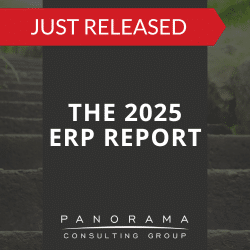From improving customer service to preventing customer churn, customer relationship management (CRM) systems address a multitude of business problems. Organizations can use CRM software to analyze customer interactions, predict demand, and more.
Today, we’re detailing the specific issues that CRM solutions solve, so you can determine if this is the right solution for your pain points.
Business Problems Solved by CRM
1. Fragmented Customer Data
One of the most significant problems CRM systems solve is fragmented customer data.
Businesses collect customer information from various touchpoints, including email, phone calls, social media, and more. Without a centralized system, this data remains scattered across different platforms, making it difficult to gain a complete view of the customer.
Solution: CRM systems centralize all customer data into a single, unified platform. This provides a real-time, holistic view of each customer, including purchase history and ongoing interactions.
In the retail industry, for example, a CRM can consolidate data from e-commerce systems, in-store sales, and customer service interactions. A retailer can then use the system’s analytics tools to identify purchasing patterns and tailor marketing strategies accordingly.
When our ERP consulting team oversees a CRM implementation, we help the client establish data governance to ensure quality data is available to all departments. End-users can then track customer interactions across channels while making data-driven decisions to improve customer acquisition and conversion rates.
The 2025 ERP Report
72.6% of respondents said they've already deployed AI at their organizations. Learn about AI adoption and other ERP trends by downloading our latest report.
2. Poor Customer Service
Without the right software, managing customer inquiries can become overwhelming. As inquiries accumulate, response times slow and service levels wane.
Solution: CRM systems streamline customer service by providing tools for managing and tracking customer inquiries. They enable support teams to access complete customer profiles and interaction histories, so they can resolve issues more efficiently.
ERP systems with CRM functionality also can streamline customer service. Integrating customer data and financial data helps businesses assess customer value, address billing inquiries, and handle payment issues promptly.
3. Ineffective Sales Processes
Sales teams often struggle with inefficient processes. Many teams are burdened by the workload of manually tracking leads while monitoring follow-ups and other sales activities.
Solution: CRMs automate and optimize sales processes, from lead generation until deal close. They provide sales teams with tools to manage pipelines and track progress against targets.
For example, CRM software can automate the lead scoring process, ensuring that sales representatives prioritize high-potential leads.
4. Lack of In-Depth Customer Insights
Without detailed insights into customer behavior and preferences, businesses cannot tailor their marketing and sales strategies effectively.
Another issue stemming from a lack of customer insights is missed cross-selling and upselling opportunities, which can impact revenue growth.
Solution: The top CRM systems feature advanced analytics and reporting tools that provide intelligent insights into customer behavior, buying patterns, and engagement levels. These insights enable businesses to create personalized product recommendations, optimize promotional offers, and streamline customer onboarding processes.
5. Ineffective Marketing Campaigns
Marketing efforts can be wasted if they are not targeted or tracked effectively. Without proper tools, it is challenging to measure the success of marketing campaigns and understand their impact on revenue.
Solution: CRM systems provide tools for segmenting audiences, automating email campaigns, and tracking campaign performance. This can drive increased engagement and generate more qualified leads.
6. Poor Team Collaboration
In many organizations, departments operate in silos, leading to poor communication and collaboration. Under these conditions, consistent customer experiences become a thing of the past, and the business misses critical opportunities for building loyalty and trust.
Solution: CRM software facilitates better collaboration by providing a centralized platform where all team members can access the same customer information. Employees can then manage customer journeys to ensure interactions are consistent and aligned with the brand’s values.
When our ERP consultants manage pre-implementation for CRM projects, we help clients develop a digital strategy that defines how their CRM will interact with existing systems. System integration makes it easier for employees to discuss insights and develop unified strategies.
7. Inaccurate Sales Forecasting
Sales forecasting provides the actionable insights necessary for fine-tuning strategies, optimizing resource allocation, and enhancing agility. Yet, many organizations encounter challenges in forecast reliability, resulting in misaligned efforts and missed market opportunities.
Solution: Many cloud-based CRM systems provide advanced forecasting tools that analyze sales data and market trends to predict future sales performance. This helps businesses set realistic sales targets and make more informed decisions in areas such as inventory management and production planning.
(Learn about AI-driven forecasting and other enterprise software trends.)
8. Lack of Customer Retention Strategies
Businesses often struggle to retain customers because they lack the data insights to develop effective retention strategies.
Solution: CRMs provide tools for tracking customer satisfaction, analyzing churn patterns, and automating retention campaigns. Using these tools, sales managers can identify at-risk customers and personalize retention efforts to enhance customer loyalty.
9. Compliance and Data Security Issues
Managing customer data requires adherence to various regulations and dedicated attention to data security. Non-compliance can result when companies have outdated systems that lack robust security measures and comprehensive data management capabilities.
Solution: CRM systems help businesses comply with data protection regulations by providing secure data storage, access controls, and audit trails. They also offer tools for managing consent and preferences, ensuring that customer data is handled in accordance with legal requirements.
10. Limited Scalability
As businesses grow, their customer management needs become more complex. Without a scalable solution, managing this growth can lead to inefficiencies.
Solution: Most CRMs are designed to scale with the business, accommodating increasing volumes of data and users. These are flexible and customizable solutions that can adapt to changing business needs to provide customers with excellent service regardless of the size of the customer base.
Could CRM Software Solve Some of your Business Problems?
CRM systems address a wide range of pain points, from fragmented customer data to ineffective sales processes. By centralizing data, automating processes, and providing advanced analytics, CRMs enable businesses to improve service levels and increase customer satisfaction.
However, implementing a CRM system requires careful planning and an understanding of your specific needs. We can help you assess your pain points and gather requirements to ensure a successful software selection. Contact our ERP selection consultants below to learn more.













